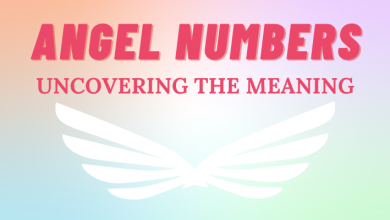What Your Dreams Are Telling You: Understanding the Hidden Messages in Your Sleep
Dreams are a mysterious and fascinating part of the human experience. From wild and fantastical to mundane and realistic, our dreams can leave us feeling confused, scared, excited, or curious. But beyond their entertainment value, dreams can also offer valuable insights into our subconscious minds and our emotional and psychological well-being.
Understanding the messages hidden in our dreams can help us gain clarity and insight into our thoughts, feelings, and behaviors. In this article, we will explore the science of dreaming, the symbolism and emotions in dreams, the personal significance of dream experiences, and how to interpret and analyze your own dreams.
The Science of Dreams
Dreams occur during the REM (Rapid Eye Movement) stage of sleep, which is characterized by increased brain activity and muscle paralysis. Although we may not always remember our dreams, research suggests that we dream every night, and that dreams serve an important role in consolidating memories, processing emotions, and regulating our mood.
Common Dream Themes and Interpretations
Dreams can be bizarre, exciting, scary, or downright weird. However, many dreams share common themes and symbols that can offer clues to their meanings. For example, falling dreams may represent a fear of failure or loss of control, while flying dreams may represent a sense of freedom or empowerment. Dreams about teeth falling out may represent a fear of losing power or status, while dreams about being chased may represent a fear of facing consequences.
Analyzing Dream Symbols
Interpreting dream symbols can be a complex process, as the meanings of symbols can vary depending on personal experiences and cultural background. However, common symbols such as animals, colors, numbers, and objects can offer valuable insight into our subconscious thoughts and feelings. For example, snakes may represent transformation or temptation, while the color red may represent passion or danger.
The Emotions in Dreams
Emotions play a powerful role in dreaming, and can leave us feeling happy, sad, scared, or confused upon waking. Common dream emotions include anxiety, fear, joy, anger, and sadness. Understanding the emotions in our dreams can help us process and cope with difficult emotions in our waking lives, as well as gain insights into our personal needs and desires.
The Personal Significance of Dreams
Dreams can also have personal significance, reflecting our unique experiences, memories, and relationships. For example, dreams about a deceased loved one may represent unresolved feelings or a need for closure, while dreams about a former partner may represent unresolved feelings of longing or regret. Understanding the personal significance of our dreams can help us identify and address issues in our waking lives.
Interpreting Your Dreams
One of the most effective ways to interpret your dreams is to keep a dream journal. By writing down your dreams as soon as you wake up, you can capture the details and emotions of the dream while they are still fresh in your mind. You can then analyze the symbols, themes, and emotions in your dreams, using online resources or books on dream interpretation to guide you.
Common Myths About Dreams
There are many common myths and misconceptions about dreams, including the belief that dreams can predict the future, that all dreams have universal meanings, and that we cannot control our dreams. However, research suggests that dreams are a natural and important part of our mental health, and that interpreting our dreams can offer valuable insights into our inner worlds.
Conclusion
In conclusion, understanding the hidden messages in our dreams can offer valuable insights into our subconscious minds and emotional well-being. By analyzing the symbols, emotions, and personal significance of our dreams, we can gain clarity and understanding of our inner worlds and address unresolved issues in our waking lives.
FAQs:
Can dreams predict the future?
Dreams do not have the ability to predict the future, but they can reflect our hopes, fears, and desires.
What does it mean if I dream about someone I know?
Dreams about people we know can represent unresolved feelings or issues with that person, or simply reflect the importance of that person in our lives.
Are nightmares always negative?
Nightmares can be negative or frightening, but they can also offer valuable insights into our subconscious fears and emotions.
Can dreams be interpreted in different ways?
Yes, dreams can have multiple meanings and interpretations depending on personal experiences and context.
Can lucid dreaming help with interpreting dreams?
Lucid dreaming, or the ability to control one’s dreams, can offer a unique opportunity to explore and analyze dream symbols and emotions. However, it requires practice and patience to achieve.
Source: https://numerologybox.com
Category: Angel Number
